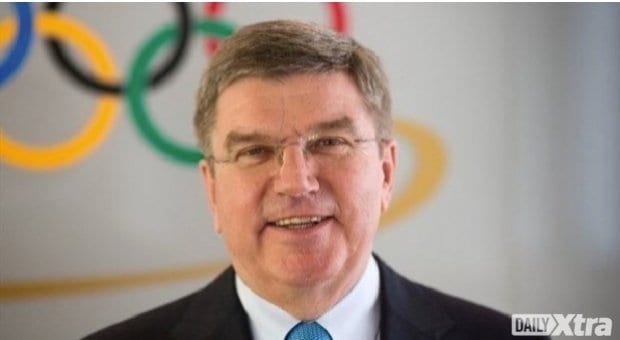Athletes heading to Sochi for the Winter Olympics may be a little muddled about what they can say at the Games, where and to whom. Officials have made confusing, vague and conflicting statements in the last two weeks about free speech on gay issues during the Fames. Here’s a rundown:
Jan 13: In an interview with ESPN, the head of the United States Olympic Committee (USOC), Scott Blackmun, says that he hopes American athletes feel free to speak their minds before heading to the Sochi Games but that they will be at the Olympics to compete, not to be political.
Jan 17: Russian President Vladimir Putin, in a question-and-answer session, manages to be both soothing and threatening to gay visitors in the same sentence. “One can feel calm and at ease,” he says, adding, “Just leave kids alone, please.”
Jan 18: A Russian protester is detained after unfurling a rainbow flag during the Olympic torch relay in Voronezh.
Jan 27 (approximately): International Olympic Committee officials send a letter to Russian LGBT activists, reassuring them that free speech will be ensured at the Olympics:
“Participants at the Olympic Games may of course express their opinions and will have many opportunities to do so whilst respecting the Olympic Charter, for instance to answer questions if asked in a press conference or mixed zone, in a media interview or on social media and discussing with their fellow athletes and others — to name but a few.”
Jan 27: IOC President Thomas Bach says in a press conference that athletes may not make political statements on the medal stand but are “absolutely free” to speak in a press conference.
Jan 29: Dmitry Chernyshenko, chair of the local Sochi Games organizing committee, contradicts Bach, saying that athletes may make statements only in a designated protest zone, 18 kilometres from the Olympic Village.
He says, “I don’t think they are allowed by charter to express those views that are not related to the sport at the press conference room.”
Jan 31: Australian Olympic Committee head John Coates says that athletes should not protest on the podium, but press conferences are okay. He threatens dissenting athletes with nonspecific punishment.
“We control the podium,” he says. “And we say there will be no political demonstrations there, and that’s the message we’ve given to our athletes. We’re asking them to respect the Olympic movement during those ceremonies.”
“If they do [protest on the podium], they will be dealt with, on a case-by-case basis. Enjoy the medal, respect your fellow competitors. If you want to have a whack at the Russian government over this legislation, do it in your press conference.”


 Why you can trust Xtra
Why you can trust Xtra


